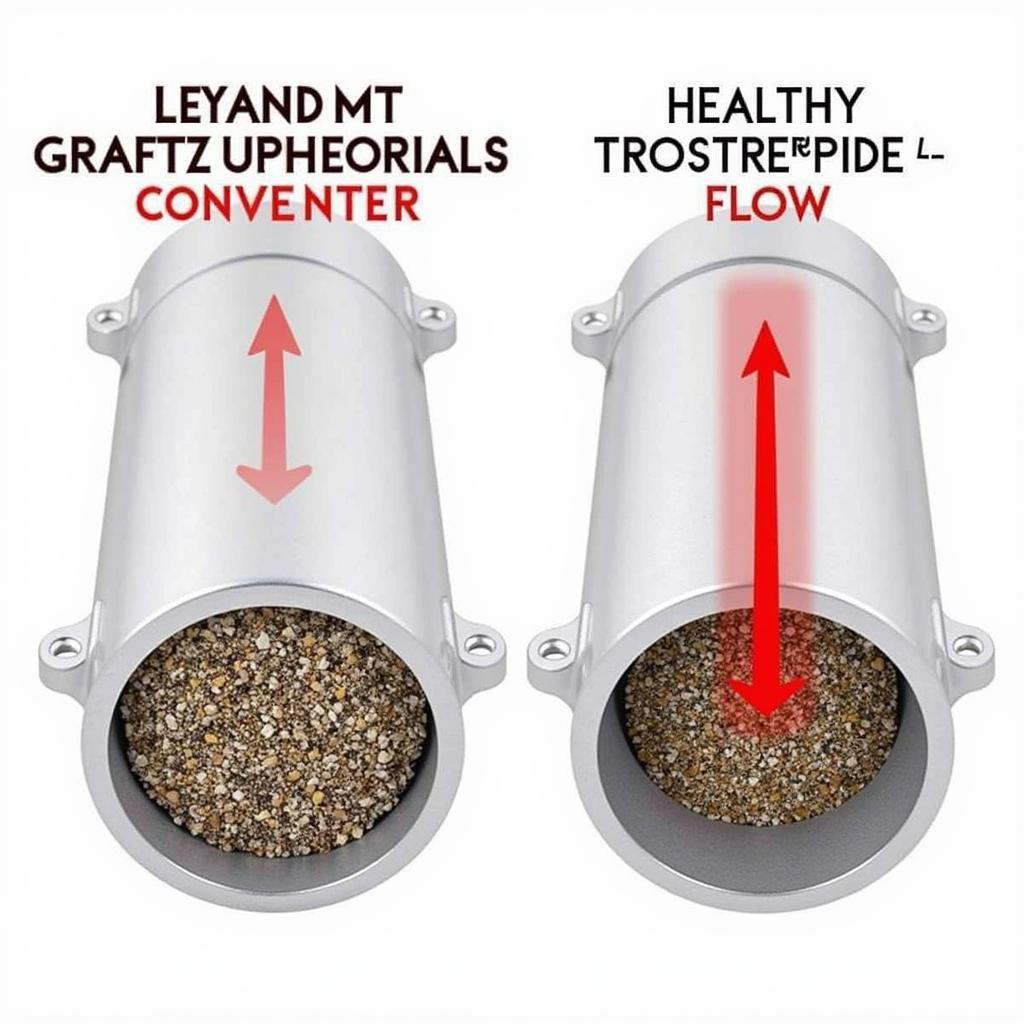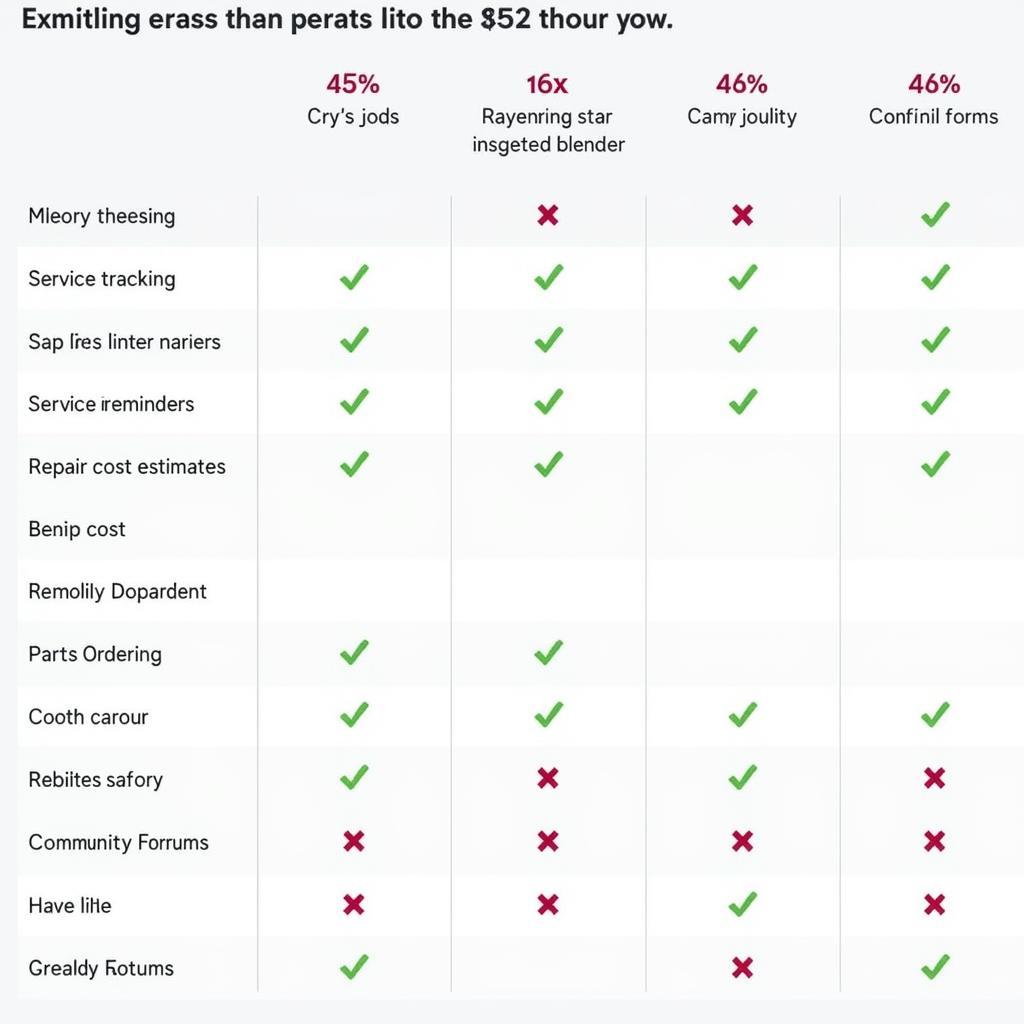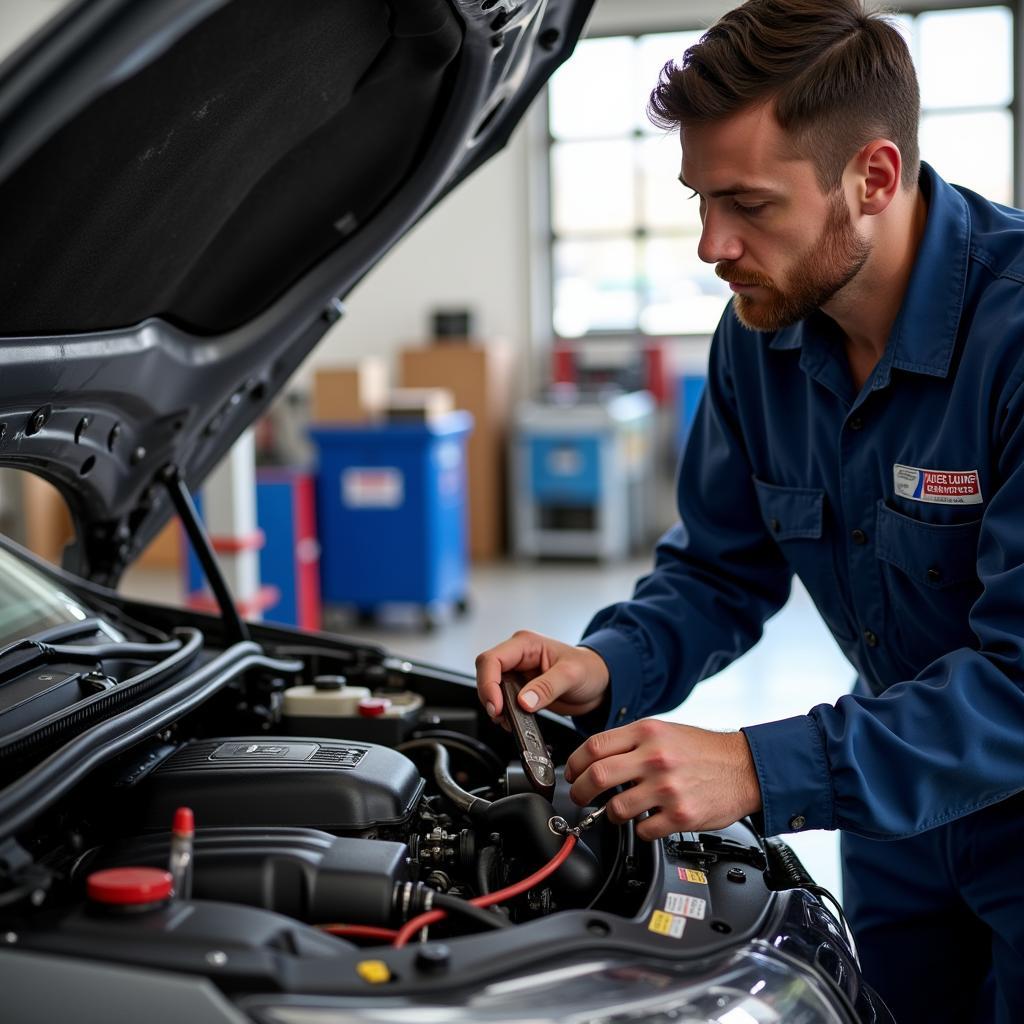If your car is overheating, you’re not alone. It’s a common issue that can stem from a variety of problems, ranging from simple fixes to more complex mechanical failures. Understanding the potential causes can save you time, money, and unnecessary stress down the road. Let’s delve into the most common reasons why your car might be overheating.
Common Culprits Behind an Overheating Car
An overheating engine can be a real headache, but identifying the source of the problem is the first step to getting back on the road. Several key components can contribute to this issue.
The Cooling System: Your Engine’s Best Friend
The cooling system is your engine’s primary defense against overheating. A malfunction in any part of this system can lead to trouble.
- Low Coolant: This is often the most obvious culprit. Check your coolant reservoir when the engine is cold. If it’s low, top it off. However, consistently low coolant could indicate a leak, which requires further investigation.
- Coolant Leaks: Leaks can occur in various places, including the radiator, hoses, water pump, or even the engine block itself. Look for signs of leaks such as puddles under your car or a sweet smell coming from the engine compartment.
- Faulty Radiator: The radiator’s job is to dissipate heat. A clogged or damaged radiator can’t do this effectively. Look for leaks, rust, or damage to the radiator fins.
- Malfunctioning Thermostat: The thermostat regulates the flow of coolant through the engine. A stuck closed thermostat prevents coolant from circulating, leading to overheating.
- Broken Water Pump: The water pump circulates coolant through the system. If it fails, coolant won’t flow, causing the engine to overheat. Listen for unusual noises coming from the pump, or check for leaks around it.
- Damaged Radiator Fan: The radiator fan helps draw air through the radiator to cool the coolant. If it isn’t working, the coolant won’t cool down efficiently, especially at low speeds or idle.
Beyond the Cooling System: Other Potential Issues
While the cooling system is the primary suspect, other factors can also cause overheating.
- Oil Issues: Low oil levels or dirty oil can reduce the engine’s ability to dissipate heat. Regular oil changes are crucial for preventing this.
- Clogged Catalytic Converter: A clogged catalytic converter can restrict exhaust flow, leading to increased engine temperature. This often results in a loss of power and poor fuel economy.
 Clogged Catalytic Converter Causing Overheating
Clogged Catalytic Converter Causing Overheating
- Severe Driving Conditions: Driving in extreme heat, especially while towing or carrying heavy loads, can put extra strain on the cooling system.
- Ignition Timing Problems: Incorrect ignition timing can cause the engine to work harder, generating excess heat.
“Regular maintenance is key to preventing overheating,” says John Smith, a certified automotive technician with over 20 years of experience. “Simple checks like monitoring coolant levels and ensuring your cooling system is functioning properly can save you a lot of trouble down the road.”
My Car Keeps Overheating: What Could Be the Problem?
If you find that your car keeps overheating, it’s important to address the issue promptly. Ignoring it can lead to serious engine damage. my car keeps overheating what could be the problem provides further insights into persistent overheating issues.
“Don’t underestimate the importance of a well-maintained cooling system,” adds Sarah Jones, a senior mechanical engineer specializing in automotive thermal management. “It’s the heart of your engine’s temperature regulation.” Simple issues like a car solenoid problems or conrol switch problem in cars can sometimes indirectly impact your car’s temperature control, making diagnosis crucial.
Conclusion: Keeping Your Cool When Your Car Overheats
My car is overheating: what could be the problem? Hopefully, this article has shed some light on the potential causes and given you a better understanding of how to troubleshoot the issue. From low coolant to a faulty water pump, various factors can contribute to an overheating engine. Regular maintenance, prompt attention to warning signs, and seeking professional help when needed are the best ways to prevent this common car problem. Contact AutoTipPro at +1 (641) 206-8880 or visit our office at 500 N St Mary’s St, San Antonio, TX 78205, United States, for expert advice and assistance. problems with car brake on a ford crown victoria is another common problem we handle. Don’t hesitate to reach out for help. Even seemingly unrelated issues like i heat wall with car its problem can sometimes provide clues about underlying mechanical issues.






Leave a Reply